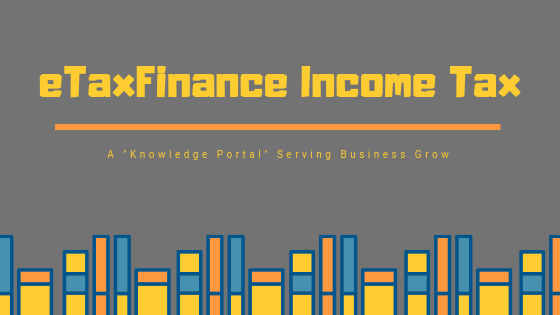Section 80C is an income tax deduction which helps to reduce tax under the Income Tax Act, 1961. Section 80C of the Income Tax Act is the most popular tool used for tax-saving by individuals.
Eligibility Criteria:
Section 80C is applicable only for individual taxpayers and Hindu Undivided Families. Corporate bodies, partnership firms, and other businesses are not qualified to avail tax exemptions under Section 80C.
Limit for Deduction:
Section 80C allows for a maximum deduction of up to Rs.1.5 lakh every year from an investor’s total taxable income.
Deductions on Investments under Section 80C:
Here are the various investments you can make to save tax under Section 80C of the Income Tax Act:
i) Life Insurance:
As per Section 80C of the Income Tax Act 1961, any amount paid towards purchasing life insurance policy is deductible from taxable income up to the deduction limit of Rs 1.5 Lac. Premiums paid toward all life insurance policies are eligible for tax benefits under Section 80C.
This deduction can be claimed for premiums paid towards insuring self, spouse, dependent children and any member of Hindu Undivided Family.
If the policy was issued before 1st April 2012, the premium should not be more than 20% of the sum assured and if the policy is issued on or after 1st April 2012, the premium should not be more than 10% of the sum assured. If the premium is paid towards a deferred annuity plan, the premium would be allowed as a deduction under this Section.
ii) Provident Fund:
Public Provident Fund (PPF) is also a popular small saving scheme which is eligible for income tax deduction under section 80C. One can make an investment up to 15,00,000 under this per year and get the full tax benefit.
The minimum deposit limit is Rs. 500 and limit for maximum deposit is Rs 1,50,000 during a year. PPF accounts have a maturity period of 15 years and it can extend in blocks of five years.
iii) Sukanya Samriddhi Yojana:
Investments made in Sukanya Samriddhi Yojana are eligible for tax deduction under Section 80C of the Income Tax Act, 1961. Individuals can open a Sukanya Samriddhi account for a girl child anytime from the date of her birth to the day she turns 10 years old. The minimum amount under Sukanya Samriddhi scheme is Rs.500 and the maximum is limit to Rs.1.5 lakh in a financial year.
Sukanya Samriddhi accounts mature 21 years from the date of account opening. Partial withdrawal is allowed after the girl turns 18. The interest earned and maturity amount is non-taxable.
iv) Equity Linked Savings Scheme:
Investments of up to 1.5 Lac done in ELSS Mutual Funds are eligible for tax deduction under section 80C of the Income Tax Act. ELSS has a lock-in period of three years. This is the shortest lock-in periods among all the tax-saving instruments.
Under Section 80C the eligible investors (individual/HUF) are entitled to deduction from their gross income of the amount invested in Equity Linked Saving Scheme (ELSS) up to Rs.1.5 lakhs. It is only eligible for employees who have continued his or her service for at least 5 years.
v) Senior Citizens Savings Scheme:
The Senior Citizen Savings Scheme is ideal for senior citizens who want a safe haven for investment and save tax at the same time. Tax deduction of up to Rs.1.5 lakh can be claimed under Section 80C of the Indian Tax Act, 1961.
Any Indian citizen over the age of 60 is eligible to invest in SCSS. It is also open to those who have taken early retirement or VRS over the age of 55. It is not open to non-resident Indians (NRIs) and Hindu Undivided Families (HUFs). The account can be held singly or jointly. This scheme has a tenure of 5 years.
vi) Principal repayment made towards home loan:
The amount that goes into repaying the principal on a home loan is eligible for deduction under Section 80C. The maximum tax deduction allowed under Section 80C is Rs. 1,50,000.
You need to complete the construction of the property and only then claim the deduction. To claim this deduction, you should not sell your house within 5 years after possessing it.
vii) National Saving Certificate:
National Savings Certificate is one of the most popular tax-saving instruments under Section 80C. There is no maximum limit on the purchase of NSCs, but only investments of up to Rs.1.5 lakh can earn you a tax break under Section 80C of the Income Tax Act.
The scheme is open only for individual Indian citizens. NSC is be easily available at any Indian Post Office at a fixed maturity period of 5 years. Interest rate is subject to periodic change as per Ministry of Finance announcements.
viii) 5 Year Bank Fixed Deposits:
Tax-saving fixed deposits are among the savings options that offer income tax benefits under Section 80C. Any investor can claim a deduction of a maximum of Rs.1. 5 lakh by investing in tax saver fixed deposits.
Only Individuals and Hindu Undivided Families (HUFs) can invest in tax saving FD scheme. These deposits have a lock-in period of 5 years. Premature withdrawals and loan against these FDs are not allowed.
For more details contact out team at +91-7991109093 or drop email us at [email protected]
Note: This Post was last updated on January 23, 2023
Disclaimer: The entire contents of this document have been prepared on the basis of relevant provisions and as per the information existing at the time of the preparation i.e. January 23, 2023. Although care has been taken to ensure the accuracy, completeness and reliability of the information provided, We assume no responsibility therefore. Users of this information are expected to refer to the relevant existing provisions of applicable Laws. The user of the information agrees that the information is not a professional advice and is subject to change without notice. We assume no responsibility for the consequences of use of such information. IN NO EVENT SHALL WE SHALL BE LIABLE FOR ANY DIRECT, INDIRECT, SPECIAL OR INCIDENTAL DAMAGE RESULTING FROM, ARISING OUT OF OR IN CONNECTION WITH THE USE OF THE INFORMATION.


